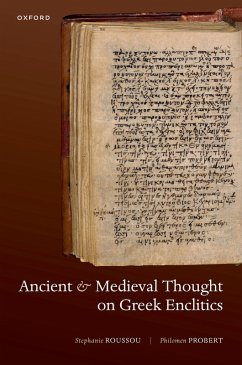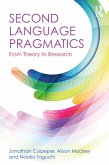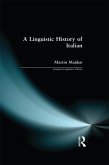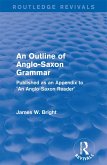This book has two complementary aims: to improve our grasp of the ideas about Greek enclitics that ancient and medieval scholars have passed down to us, and to show how a close examination of these sources yields new answers to questions concerning the facts of the ancient Greek language itself. New critical editions of the most extensive surviving ancient and medieval texts on Greek enclitics, together with translations into English, lay the foundations for an improved understanding of thought on Greek enclitics in those periods. Stephanie Roussou and Philomen Probert then draw out the main doctrines and the conceptual apparatus and metaphors that were used to think and talk about enclitic accents, consider the antiquity of these ideas within the Greek grammatical tradition, and make use of both ancient and medieval sources to explore two much-debated questions about the facts of the language itself. Firstly, the Greek sources turn out to shed new light first of all on the circumstances under which enclitic ?s?? was used and the circumstances under which non-enclitic ?s?? appeared. Secondly, ancient and medieval evidence from several directions comes together in a way that has gone unnoticed until now, and suggests a new answer to the question of how sequences of consecutive enclitics were accented in antiquity.
Dieser Download kann aus rechtlichen Gründen nur mit Rechnungsadresse in A, B, BG, CY, CZ, D, DK, EW, E, FIN, F, GR, HR, H, IRL, I, LT, L, LR, M, NL, PL, P, R, S, SLO, SK ausgeliefert werden.









